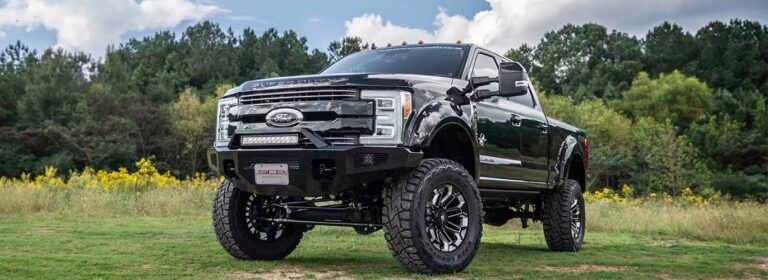The Road to Culinary Entrepreneurship: Navigating the Used Food Truck Market in Atlanta

The Road to Culinary Entrepreneurship: Navigating the Used Food Truck Market in Atlanta
Atlanta, a city synonymous with a vibrant, diverse, and rapidly evolving culinary scene, has long embraced the mobile gastronomy movement. From the bustling streets of Midtown and the historic charm of Inman Park to the corporate campuses of Dunwoody and the sprawling suburbs, food trucks have become an indispensable part of the city’s dining landscape. For aspiring chefs, seasoned restaurateurs, or ambitious entrepreneurs looking to dip their toes into the highly competitive yet rewarding world of food service, acquiring a food truck represents a powerful entry point. And for many, the smart, strategic choice lies in the bustling market of used food trucks for sale in Atlanta.
The allure of a pre-owned mobile kitchen is multi-faceted, primarily revolving around significant cost savings, faster market entry, and the potential to inherit a proven, functional setup. However, navigating this market requires diligence, foresight, and a comprehensive understanding of what makes a successful purchase. This article delves deep into the nuances of acquiring a used food truck in Atlanta, offering a roadmap for aspiring mobile culinary magnates.
The Irresistible Appeal of a Pre-Owned Mobile Kitchen
The decision to purchase a used food truck over a brand-new custom build is often driven by compelling economic and practical advantages:
-
Cost Efficiency: This is, without doubt, the primary driver. A new, fully customized food truck can easily cost upwards of $100,000 to $200,000, sometimes even more. A well-maintained used truck, depending on its age, mileage, and included equipment, can be acquired for a fraction of that price, often ranging from $25,000 to $80,000. This substantial saving can be reinvested into inventory, marketing, staff training, or simply provide a healthier financial cushion during the crucial initial months of operation.
-
Faster Launch Time: Building a custom food truck from scratch involves lengthy design, fabrication, and outfitting periods, often taking several months to a year. A used truck, by contrast, is often ready to roll, requiring only minor modifications, deep cleaning, and health department approvals. This speed to market is invaluable in a fast-paced industry where trends can shift quickly.
-
Proven Functionality: A used truck has already been on the road, tested in real-world scenarios. Its existing equipment has been used, and any major mechanical or kitchen-related issues (ideally) would have been addressed by the previous owner. This reduces the risk of encountering unexpected design flaws or equipment malfunctions inherent in a brand-new, untested build.
-
Reduced Depreciation: Like any vehicle, a new food truck depreciates significantly the moment it drives off the lot. A used truck has already absorbed the steepest part of this depreciation curve, meaning your investment is likely to hold its value better over time.
-
Inherited Permitting & Layout: While permits are non-transferable, a used truck often comes with a layout that has previously passed health inspections. This provides a solid blueprint for understanding the requirements and adapting the space to meet current Atlanta-specific health codes.
Navigating the Atlanta Market: Where to Find Your Mobile Dream
Atlanta’s bustling food scene creates a dynamic market for used food trucks. Here’s where prospective buyers can begin their search:
-
Online Marketplaces (National & Local):
- Food Truck Specific Sites: Websites like FoodTruckEmpire.com, UsedVending.com, and RoamingHunger.com specialize in food truck listings, offering a wide range of options from across the country, often with detailed descriptions and photos.
- General Classifieds: Craigslist (specifically the Atlanta section), Facebook Marketplace, and eBay Motors are goldmines for local listings. Be prepared for a wider variety of conditions and seller types here, requiring more diligent vetting.
- Facebook Groups: Search for "Atlanta Food Truck Owners," "Food Trucks for Sale Georgia," or similar groups. These community-driven platforms often feature trucks for sale directly by owners looking to upgrade or exit the business.
-
Specialized Dealers & Brokers: Several dealerships, both local to Georgia and national, specialize in selling used commercial vehicles, including food trucks. These dealers often inspect and service the trucks before sale, offering a level of confidence that might not come with a private seller. They may also provide financing options.
-
Auctions & Repossessions: Government surplus auctions, commercial vehicle auctions, or repossessed asset sales can occasionally yield food trucks at very competitive prices. However, these sales are often "as-is, where-is," requiring a highly experienced eye to assess the true condition and potential hidden costs.
-
Networking within the Atlanta Food Truck Community: Attend local food truck festivals, events, and meet-ups. Engage with current food truck owners. The tight-knit Atlanta food truck community is often a great source for leads, as owners might be looking to sell discreetly or know someone who is.
The Critical Inspection: What to Scrutinize Before You Buy
Purchasing a used food truck is a significant investment, akin to buying a commercial property and a heavy-duty vehicle rolled into one. A meticulous inspection is paramount to avoid costly surprises down the line.
-
Vehicle Chassis & Mechanics:
- Engine & Transmission: This is the heart of your operation. Have a certified mechanic perform a pre-purchase inspection. Check for fluid leaks, listen for unusual noises, and inquire about service history. Ensure the transmission shifts smoothly without jerking or slipping.
- Tires & Brakes: Inspect tire tread depth and look for uneven wear, which could indicate alignment issues. Test the brakes for responsiveness and listen for grinding or squealing.
- Frame & Suspension: Look for signs of rust, cracks, or damage to the frame. Check the suspension for sagging or unusual bounce.
- Mileage & Age: While higher mileage isn’t always a deal-breaker for well-maintained commercial vehicles, it’s a factor in wear and tear. Older models might be harder to find parts for.
-
Kitchen Equipment & Appliances:
- Functionality: Test every single appliance: griddles, fryers, ovens, refrigerators, freezers, steam tables. Ensure they heat up or cool down properly and maintain temperature.
- Ventilation System: The exhaust hood and fire suppression system are critical for safety and health code compliance. Ensure the fan works effectively and the fire suppression system is up-to-date and certified.
- Condition: Look for dents, rust, or excessive wear on stainless steel surfaces. Are the doors on fridges and freezers sealing properly?
-
Electrical System:
- Generator: The generator is your lifeline. Start it up, listen to it run, and test its output by running multiple appliances simultaneously. Check its maintenance history.
- Wiring & Outlets: Inspect all visible wiring for fraying or damage. Test every outlet to ensure it’s functional and properly grounded.
- Lighting: Ensure all interior and exterior lighting works.
-
Plumbing & Water System:
- Water Tanks: Inspect fresh water and grey water tanks for leaks, cracks, or signs of mold. Ensure they are adequately sized for your operation and meet health code requirements (typically 3-compartment sink, hand wash sink, and sometimes a prep sink).
- Pumps & Water Heater: Test the water pump for proper pressure. Ensure the water heater is functional and provides hot water consistently.
- Leaks: Look for any signs of leaks around sinks, pipes, or connections.
-
Exterior & Interior Condition:
- Body & Paint: Check for significant dents, rust, or peeling paint. These can be indicators of poor maintenance or potential structural issues.
- Roof: Inspect the roof for leaks, water damage, or poorly sealed seams.
- Flooring & Walls: Ensure the flooring is commercial-grade, slip-resistant, and easy to clean. Look for cracks, peeling, or water damage on walls and ceilings.
- Serving Window & Door: Check the functionality and security of the serving window and entry door.
-
Health Code Compliance (Atlanta Specific): This is perhaps the most critical aspect. Atlanta (and Fulton/DeKalb County) has stringent health department regulations. A used truck that was compliant in another state or even another county in Georgia might require modifications. Look for:
- Properly sized and installed sinks (3-compartment and handwash).
- Approved water heater.
- Adequate ventilation.
- Approved finishes on walls, floors, and ceilings.
- Proper waste disposal systems.
- Integrated fire suppression system.
- The previous owner’s health inspection reports can offer valuable insight.
Understanding Valuation & Negotiation
The price of a used food truck in Atlanta is influenced by numerous factors:
- Age and Mileage: Generally, newer trucks with lower mileage command higher prices.
- Included Equipment: High-quality, well-maintained commercial-grade equipment significantly adds to the value.
- Condition: A truck in excellent mechanical and aesthetic condition will fetch more.
- Customization: Unique, well-executed custom builds can increase value.
- Market Demand: High demand for food trucks in Atlanta can drive prices up.
Do your market research. Compare similar trucks listed for sale. Don’t be afraid to negotiate. Highlight any deficiencies you found during your inspection to justify a lower offer. A fair deal benefits both buyer and seller.
The Paperwork & Legalities: Don’t Get Stuck in Red Tape
Beyond the physical inspection, the administrative and legal aspects are crucial:
- Clear Ensure the seller has a clear, transferable title for the vehicle. Verify the VIN matches the title and the truck.
- Bill of Sale: A detailed bill of sale outlining the purchase price, included equipment, and "as-is" clause (if applicable) protects both parties.
- Permits & Licenses (Atlanta/Fulton County/DeKalb County): This is complex and requires careful navigation.
- Mobile Food Service Permit: Issued by the Fulton County Board of Health or DeKalb County Board of Health, depending on where you primarily operate. This involves inspections of the truck and commissary kitchen.
- Business License: Required from the city of Atlanta or the specific county (Fulton, DeKalb, Gwinnett, etc.) where your business is registered.
- Fire Marshal Inspection: Required by the City of Atlanta Fire Rescue Department for the fire suppression system.
- Zoning & Parking Permits: Check local ordinances regarding where food trucks can operate and park.
- Sales Tax Permit: For collecting and remitting sales tax.
- EIN (Employer Identification Number): If you plan to hire employees.
- Commissary Agreement: Atlanta regulations often require food trucks to operate out of an approved commissary kitchen for food prep, waste disposal, and water refilling. Secure this agreement before your health inspection.
- Insurance: You’ll need comprehensive commercial auto insurance (for the vehicle itself) and general liability insurance (for your business operations).
Financing Your Food Truck Dream
While cheaper than new, a used food truck still represents a significant investment. Financing options include:
- SBA Loans: Small Business Administration (SBA) loans often have favorable terms and are designed to help small businesses.
- Equipment Loans: Some banks and financial institutions offer specific loans for purchasing commercial equipment.
- Personal Savings/Investors: Self-funding or securing investment from friends, family, or angel investors.
- Seller Financing: Occasionally, a seller might offer financing options, especially if they are motivated to sell quickly.
Post-Purchase: Getting Ready for the Road
Once the deal is sealed, the real work begins:
- Deep Cleaning & Sanitization: Thoroughly clean and sanitize every surface to meet health department standards.
- Modifications & Upgrades: Make any necessary repairs, upgrades, or branding modifications. This might involve new wraps, painting, or minor equipment changes.
- Menu Development & Testing: Finalize your menu, source ingredients, and practice your recipes to ensure consistency and speed.
- Branding & Marketing: Design your logo, truck wrap, and social media presence. Start building buzz for your upcoming launch.
- Staffing: If needed, hire and train your crew.
The Road Ahead: Challenges and Triumphs
The journey of a food truck entrepreneur is not without its challenges. Unexpected maintenance, fierce competition, and the grueling pace of mobile operations can be demanding. However, the rewards are equally compelling: the freedom of being your own boss, the direct connection with your customers, the ability to experiment with diverse cuisines, and the potential for significant profit.
Atlanta’s dynamic event calendar, burgeoning neighborhoods, and diverse corporate landscape offer an unparalleled backdrop for food truck success. From catering private events and participating in large-scale festivals like Taste of Atlanta to serving hungry office workers for lunch, the opportunities are vast.
Conclusion
The market for used food trucks for sale in Atlanta offers a compelling gateway into the vibrant mobile culinary scene. By approaching the purchase strategically, with thorough due diligence on both the mechanical and operational aspects, and a clear understanding of Atlanta’s specific regulatory environment, aspiring food truck owners can significantly mitigate risks and accelerate their path to success. The dream of serving your unique culinary creations to the hungry masses of the A-T-L is within reach, and a well-chosen used food truck might just be your perfect vehicle to get there. Embrace the challenge, savor the journey, and prepare to delight Atlanta, one delicious dish at a time.


